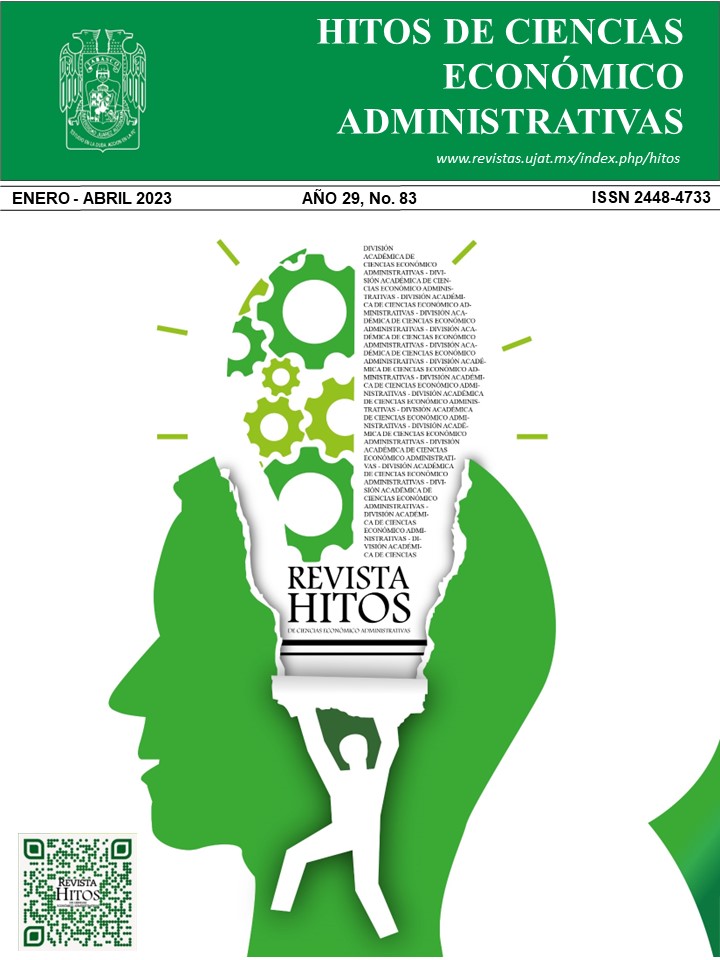Free Higher Education in Mexico Based on Jurisdictional Trends
DOI:
https://doi.org/10.19136/hitos.a29n83.5701Keywords:
Conventionality control, Human Rights, Enforceability, Gratuity in Higher Education.Abstract
OBJECTIVE: To analyze the experience regarding the search for free higher education in Mexico, from the jurisdictional matter.
MATERIALS AND METHODS: It was developed under the qualitative hermeneutics approach, through the analysis of the criteria issued by the Federal Judiciary regarding free Higher Education.
RESULTS: Nine theses were found, published in the period of September 2014- January 2017 which directly addressed the issue of gratuity, it was until 2017 that the criteria or the principle of Human Right to Education was fully recognized through jurisprudence in Higher Education.
CONCLUSIONS: The diagnosis on the trends of Human Right to Higher Education in concatenation with the principle of free education represents a basic x-ray of a complex, and structural challenge that will require a lot of effort so it can be achieved on the part of all the involved actors. It can be observed, that the tendency of the Judiciary Power has been to recognize free Higher Education through the control of conventionality with the treaties that have been signed in Mexico.
Downloads
References
Aboites, H. (2012). El derecho a la educación en México: del liberalismo decimonónico al neoliberalismo del siglo XXI. RMI, 361-389.
ANUIES. (2021). La gratuidad de la educación superior como derecho humano en el sistema mexicano. Anotaciones de la ANUIES sobre su interpretación y efectividad. México: ANUIES.
Cámara de Diputados. (2022). Constitución Política de los Estados Unidos Mexicanos. México: Congreso de la Unión.
Colín, Á. (2018). El derecho a la educación superior en México. Nexos.
Courtis, C. (2009). Cómo vigilar el cumplimiento de las obligaciones estatales en materia de derechos económicos, sociales y culturales. En P. E. González Monguí, Derechos económicos, sociales y culturales (p. 461). Colombia: Universidad Libre de Colombia.
Cruz Parcero, J. A. (2020). Los derechos sociales en México. Reflexiones sobre la Constitución de 1917. En J. A. Cruz Parcero, Los derechos sociales en la Constitucion de 1917: un balance en su centenario. México: Instituto de Investigaciones Jurídicas de la UNAM.
Estévez, A. y Vázquez, D. (2017). 9 razones para (des)confiar de las luchas por los derechos humanos. México: FLACSO.
Gargarella, R. (2005). El derecho a la protesta. El primer Derecho. Argentina: AD HOC.
Gómez Collado, M. (2017). Panorama del sistema educativo mexicano desde la perspectiva de las políticas públicas. Innovación Educativa, 143-163.
González, M. (2000). La gratuidad en la educación aplicada a las universidades públicas. Lex, difusión y análisi, 435-438.
Hernandez, R., Fernández, C. y Baptista, P. (2014). Metodología de la investigación. México: McGraw-Hill.
Horbath, J. y Gracia, M. (2016). El derecho a la educación: un análisis a partir de la política educativa de las dos últimas décadas en México. Revista de Relaciones Internacionales, Estrategia y Seguridad, 171-191.
INCIDE SOCIAL. (2018). Documentos con mecanismos de exigibilidad y justiciabilidad de los DESCA. México: INCIDE SOCIAL, A. C. y Observatorio de Política Social y Derechos Humanos.
INTEGRALIA. (2019). Planeación, programación y rendición de cuentas del presupuesto de las universidades públicas en México: razones, resultados y retos. México: INTEGRALIA.
Navarro, M. (2018). AMLO quiere que la educación superior sea obligatoria, pero hay crisis en el sector. Forbes.
Panigua, I. (2005). La exigibilidad polítca de los derechos humanos y sus dos componentes: la exigibilidad social y la exigibilidad jurídica. San Salvador: Fundación de Estudios para la aplicación del Derecho.
Poder Judicial de la Federación. (2014). Semanario Judicial de la Federación. México: Poder Judicial de la Federación.
Sustein, C. y Holmes, S. (2011). El costo de los derechos. Por qué la libertad depende de los impuestos. Buenos Aires: Siglo XXI.
UNESCO. (Junio de 2022). Qué debe saber acerca de la educación superior. UNESCO.
Villaseñor, G. (2001). ¿Gratuidad o pago en la educación superior pública? Revista de la Educación Superior, 1-4.
Downloads
Published
Issue
Section
License
Copyright (c) 2023 Rodolfo Campos Montejo

This work is licensed under a Creative Commons Attribution-NonCommercial-ShareAlike 4.0 International License.
As a requirement for the manuscript, the author is requested to provide the Copyright Assignment Letter, so that the Journal has the publication rights and to avoid plagiarism.
PLAGIARISM POLICIES
The Editorial Board of the Journal HITOS DE CIENCIAS ECONÓMICO ADMINISTRAIVAS has the authority to reject in the review process any manuscript that does not have adequate citation in the documents consulted in its scientific research work, which can be considered as plagiarism behaviors. Likewise, the referees carry out the plagiarism review using specialized software, such as iThenticate, among others.
COPYRIGHT POLICIES
Authors who have publications in the journal accept the following terms: • At the time the manuscript is accepted, the author transfers the copyright to the Journal HITOS DE CIENCIAS ECONÓMICO ADMINISTRATIVAS.
- The authors may make additional agreements for non-exclusive distribution of the published version of the article (e.g., including it in an institutional repository or publishing it in a book) provided that the initial publication in this journal is indicated.
- Authors are allowed and recommended to publish their research work on the Internet (eg, institutional or personal files), which would allow more beneficial exchanges to increase the citation of the published work.
This work is licensed under Creative Commons Attribution-NonCommercial-NoDerivatives 4.0 International





